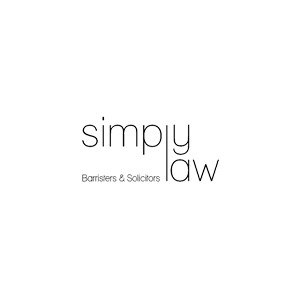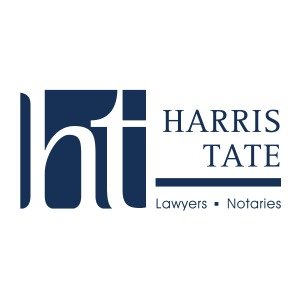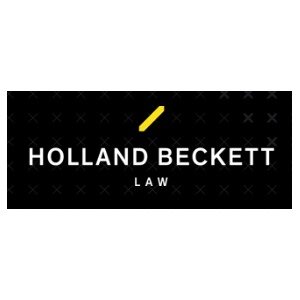Best Corporate Governance Lawyers in Tauranga
Share your needs with us, get contacted by law firms.
Free. Takes 2 min.
List of the best lawyers in Tauranga, New Zealand
About Corporate Governance Law in Tauranga, New Zealand
Corporate governance refers to the system of rules, practices, and processes by which companies are directed and controlled. In Tauranga, as in the rest of New Zealand, corporate governance is shaped by legislation, common law principles, and accepted business standards. It encompasses the relationship between company management, the board of directors, shareholders, and other stakeholders. The aim is to ensure accountability, transparency, and integrity within companies operating in Tauranga, from small local businesses to larger corporations.
Why You May Need a Lawyer
Individuals and businesses in Tauranga may seek legal advice on corporate governance for a variety of reasons. Common situations include:
- Setting up a new company and understanding director responsibilities
- Complying with the Companies Act and Financial Markets Conduct Act requirements
- Drafting or reviewing constitutions and governance documents
- Navigating conflicts of interest and boardroom disputes
- Advising on shareholder rights and remedies
- Providing guidance on annual general meetings and resolutions
- Compliance with local and national regulatory frameworks
- Dealing with allegations of director misconduct or breaches of duty
- Supporting company restructuring or mergers
- Managing risk and implementing effective governance frameworks
Local Laws Overview
Key statutes shape corporate governance in Tauranga. The main piece of legislation is the Companies Act 1993, which details director duties, shareholder rights, company management, and reporting requirements. The Financial Markets Conduct Act 2013 also affects listed and unlisted companies regarding financial reporting and transparency. Local businesses must pay attention to rules set by the Inland Revenue Department, Ministry of Business, Innovation and Employment (MBIE), and possibly the New Zealand Stock Exchange (NZX) if they are publicly listed. Tauranga companies should also comply with the principles in the NZX Corporate Governance Code, even if they are not publicly listed, as this provides best practice guidelines. Directors are subject to statutory duties of good faith, care, and diligence, and can be personally liable for breaches. Company constitutions and shareholder agreements are essential governance tools that must align with local laws.
Frequently Asked Questions
What is the role of a director in a Tauranga company?
Directors oversee the company’s management and strategic direction. They must act in good faith, in the best interests of the company, and comply with the Companies Act 1993’s duties.
Do small businesses in Tauranga need formal corporate governance structures?
While legal obligations differ for small and large entities, it is recommended even for small businesses to have clear governance documents, processes, and accountability structures in place.
What are directors’ key legal duties under New Zealand law?
Directors must act in good faith, avoid conflicts of interest, exercise care and diligence, and not trade recklessly or incur obligations the company cannot meet.
How are shareholder disputes typically resolved?
Disputes may be settled through negotiation, mediation, or court action. The company constitution and shareholder agreements often set out dispute resolution procedures.
What corporate records must be maintained by Tauranga companies?
Companies are required to keep accurate financial records, minutes of meetings, registers of directors and shareholders, and annual reports as outlined in the Companies Act 1993.
Are Tauranga directors liable for company debts?
Generally, companies have separate legal identity, but directors can be liable if they breach their duties, act recklessly, or allow the company to trade while insolvent.
How can a company improve its corporate governance in Tauranga?
By adopting clear constitutions, regularly reviewing governance procedures, training directors, and staying updated with best practice guidelines such as the NZX Corporate Governance Code.
What legal obligations apply when issuing shares or changes in ownership?
Any issuance or transfer of shares must comply with the Companies Act, and relevant shareholder approvals and registrations with the Companies Office are required.
Do Tauranga companies have to hold Annual General Meetings (AGMs)?
Most companies must hold AGMs unless their constitution or shareholders agree to dispense with this requirement, but certain decisions still need shareholder approval.
When should I seek legal advice on corporate governance?
It is wise to consult a lawyer when setting up a company, making significant structural changes, facing disputes, or when unsure about compliance with statutory or regulatory requirements.
Additional Resources
Several New Zealand organizations and agencies provide guidance and support for corporate governance issues:
- Ministry of Business, Innovation and Employment (MBIE)
- Companies Office
- Inland Revenue Department
- Financial Markets Authority (FMA)
- New Zealand Law Society
- Institute of Directors New Zealand
These bodies offer information on compliance, reporting requirements, director responsibilities, and best practice governance standards for Tauranga businesses.
Next Steps
If you need legal assistance with corporate governance in Tauranga, the best approach is to contact a law firm or a qualified lawyer who specializes in corporate and commercial law. Prepare a summary of your company’s structure and your particular concerns to ensure a productive initial consultation. Ensure the lawyer you choose has experience with local Tauranga businesses and knowledge of New Zealand’s corporate governance regime. Stay proactive about governance issues by keeping up to date with legal changes and seeking advice before making significant business decisions.
Lawzana helps you find the best lawyers and law firms in Tauranga through a curated and pre-screened list of qualified legal professionals. Our platform offers rankings and detailed profiles of attorneys and law firms, allowing you to compare based on practice areas, including Corporate Governance, experience, and client feedback.
Each profile includes a description of the firm's areas of practice, client reviews, team members and partners, year of establishment, spoken languages, office locations, contact information, social media presence, and any published articles or resources. Most firms on our platform speak English and are experienced in both local and international legal matters.
Get a quote from top-rated law firms in Tauranga, New Zealand — quickly, securely, and without unnecessary hassle.
Disclaimer:
The information provided on this page is for general informational purposes only and does not constitute legal advice. While we strive to ensure the accuracy and relevance of the content, legal information may change over time, and interpretations of the law can vary. You should always consult with a qualified legal professional for advice specific to your situation.
We disclaim all liability for actions taken or not taken based on the content of this page. If you believe any information is incorrect or outdated, please contact us, and we will review and update it where appropriate.

















